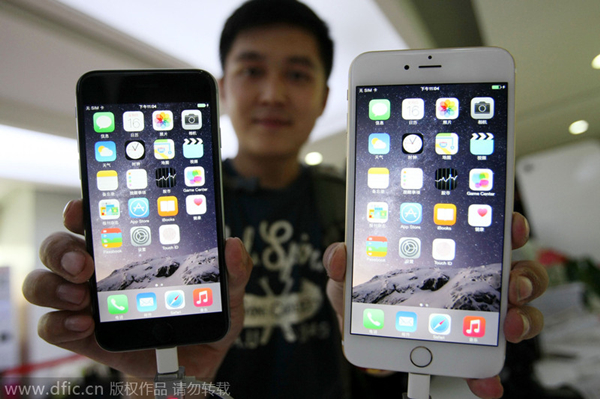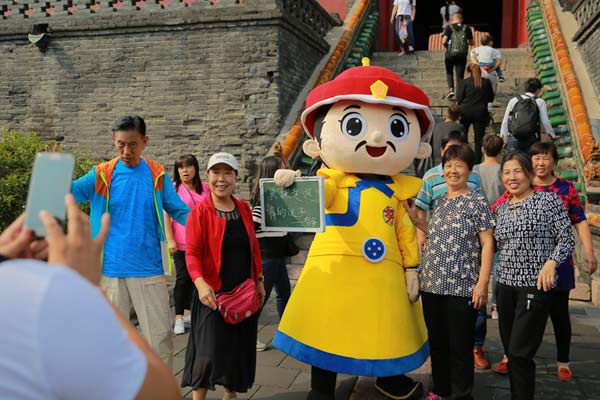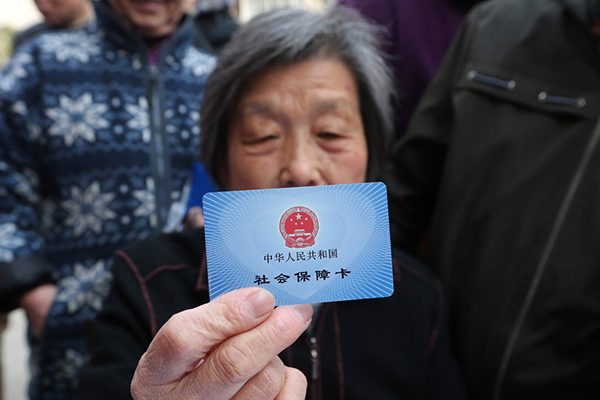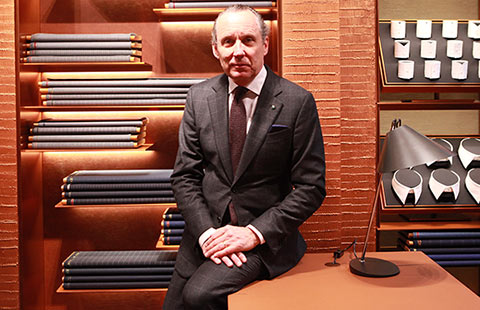Apple argues for ban on iPhone 6 to be lifted
 |
|
Chinese buyer shows iPhone 6 and iPhone 6 Plus smartphones at a branch of China Unicom in Shanghai, October 17, 2014. [Photo/IC] |
On May 10, the Beijing Intellectual Property Office halted sales of the iPhone 6 and iPhone 6 Plus because it was believed that the Apple mobile phone models infringed the design patent of a Chinese cell phone model called 100C, produced by Shenzhen Baili Marketing Service Co.
Yang Anjin, attorney of the Shenzhen-based company, said that it applied for the ban after finding that the iPhone models too closely resemble the 100C. The company had been given a patent for the 100C in July 2014, two months before the iPhone 6 and iPhone 6 Plus were issued in China, according to Yang.
The intellectual property office said at the time that the differences are too tiny to be noticed by average consumers, and ordered Apple and a reseller of its products in Beijing to stop selling the two models.
Yang Pu, Apple's attorney, said during the hearing at the Beijing Intellectual Property Court that the design of the iPhone 6 and iPhone 6 Plus has 13 differences compared with the 100C.
"Average consumers can distinguish them easily."
For example, the curvature of the iPhone model's two sides is symmetrical, "which is completely different from the Chinese product," she said. "On this occasion, we don't think we infringed any IP right of the Shenzhen-based company."
It was not reasonable to halt sales of the iPhone models, she added.
The court did not announce a verdict after hearing the case for almost eight hours on Wednesday.
The IP dispute is the latest faced by Apple over the design of its products in China.
Earlier, Apple also sued a Chinese government department and a local company over a patent dispute relating to Apple's Siri product.
In 2012, Apple paid $60 million to a Shenzhen-based maker of computer screens and LED lights to settle a dispute over the iPad trademark on the Chinese mainland.

















